Zombie Bunny is Reader-supported and may earn an affiliate commission through links on our site.
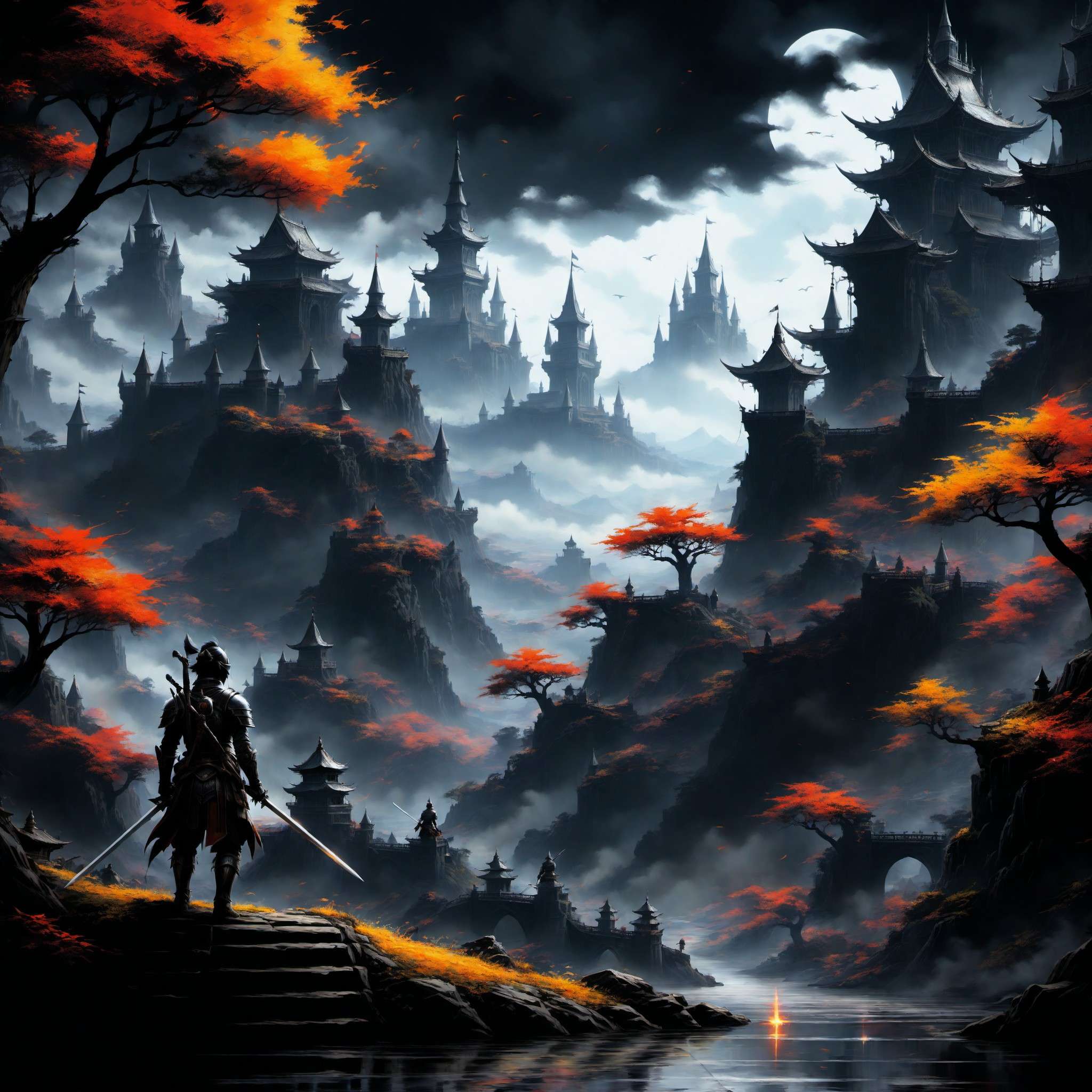
Delving Deep: The Hidden World of RPG Games
Uncover intricate gameplay, immersive narratives, and dynamic virtual worlds in RPG games. Get ready for an epic journey! #RPG #GameGenres
Immerse yourself in the captivating world of Role-Playing Games (RPGs), where storytelling, strategic thinking, and character development combine for a gaming experience like no other. Whether you’re a seasoned gamer or a newcomer, this blog will guide you through the rich history, intricate mechanics, and cultural impact of RPGs, from the early days of Dungeons & Dragons to modern digital masterpieces like The Witcher series. Discover how RPGs have evolved over the years, their influence on the gaming landscape, and what the future holds for this beloved genre. Explore the vibrant communities that surround these games and the profound social impact they have made. Dive into the endlessly fascinating world of RPG gaming with us.
Introduction: The Unseen Depths of RPG Games
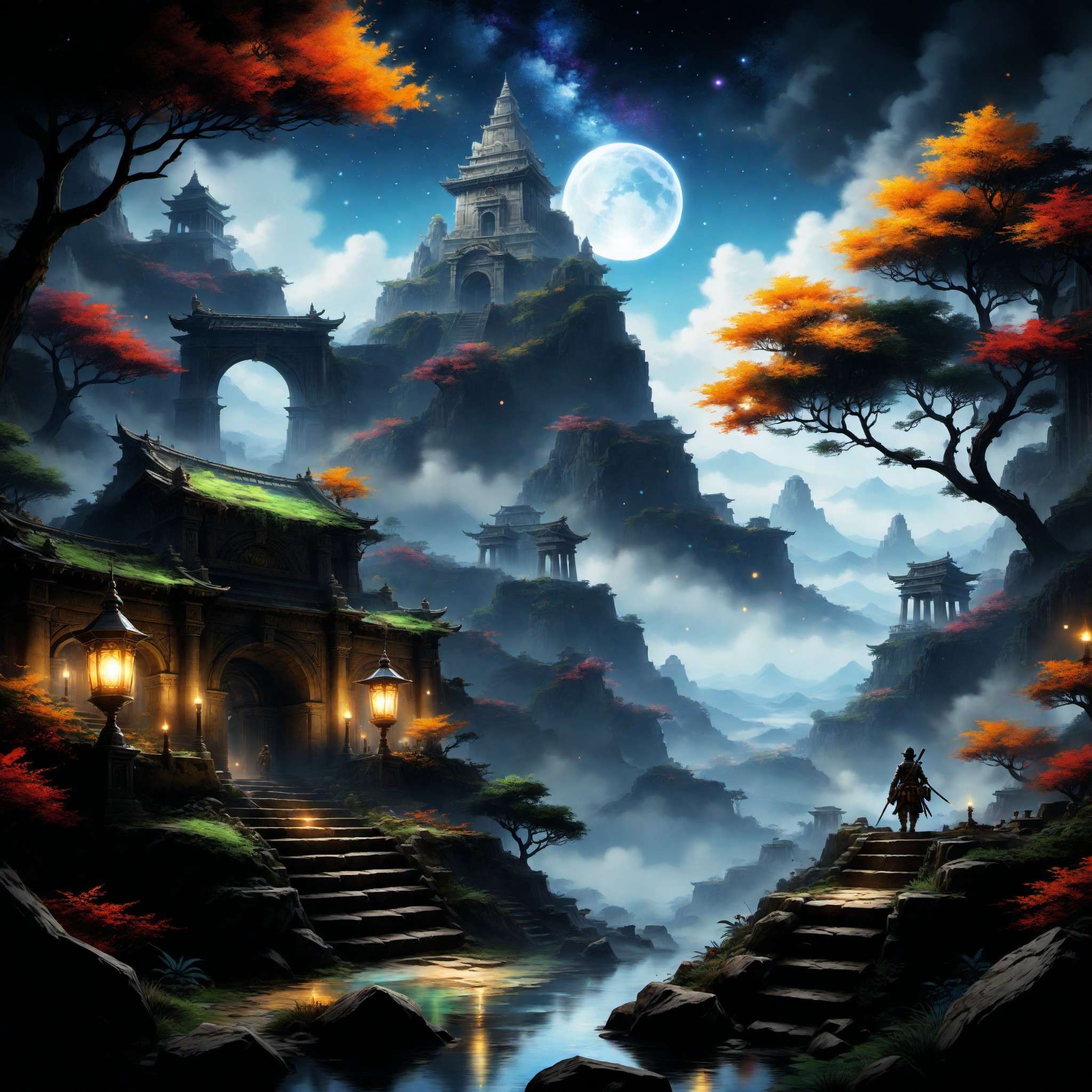
© Copyright , ZombieBunny.Org
What are RPG games
Role-playing games, or RPGs as they are commonly known, provide a unique gaming experience that goes beyond traditional video games. These immersive games offer a blend of storytelling, character development, and strategic thinking, engaging players on multiple levels. The essence of an RPG is the ability to assume the role of a character in a fantastical world, navigating through intricate stories and challenges that test the skills, wits, and decision-making abilities of the player.
From the early days of pen-and-paper Dungeons & Dragons to modern digital masterpieces like The Witcher series or Final Fantasy, RPGs have evolved drastically. Yet, they retain their core allure: a deep, interactive narrative that offers a strong sense of progression and accomplishment. Whether it’s slaying dragons, solving complex puzzles, or engaging in epic quests, RPGs provide a rich, layered gaming experience that often mirrors the complexities of real life. The choices made in these games can lead to different outcomes, adding a sense of personal investment and emotional engagement to the gaming experience. So, let’s delve deep into the captivating world of RPGs, exploring their origins, mechanics, and influence on the gaming landscape.
The rise of RPG games
The popularity of RPGs has been on a steady incline since their inception. The early days saw the dominance of tabletop RPGs, with Dungeons & Dragons paving the way for a new genre of interactive storytelling. As technology evolved, digital RPGs started to emerge, allowing gamers to explore vast, intricate worlds right from their living rooms. Games like Ultima and The Elder Scrolls set the stage for a new age of immersive gaming, combining rich narratives with complex mechanics that catered to a growing audience of dedicated gamers.
The rise of RPGs is not just about improvements in technology, but also about the increasing demand for in-depth gaming experiences. The success of RPGs like World of Warcraft and Skyrim is a testament to this trend. These games not only offer engaging gameplay, but also foster a sense of community among players, further propelling their popularity. Today, RPGs have permeated every corner of the gaming world, with various sub-genres catering to different tastes. From action RPGs and MMORPGs to tactical RPGs and roguelikes, the RPG umbrella now covers a wide variety of gaming experiences. As we continue to delve deeper into the world of RPGs, it becomes evident that their rise is more than a trend – it’s a testament to the power of immersive, narrative-driven gaming.
What to expect in the blog
In this comprehensive exploration of RPGs, we aim to provide a holistic look at the genre, touching on its history, mechanics, and cultural impact. Expect a journey that delves deep into the heart of RPG games, shedding light on every component that makes them such a captivating choice for gamers worldwide. We go back to the roots, tracing the evolution of RPGs from their tabletop beginnings to their current digital dominance.
Expect to gain a deeper understanding of game mechanics, from the rules and systems that govern gameplay to the intricate character development and progression. We’ll explore the awe-inspiring game worlds, the meticulously designed characters, and the thrilling challenges that make RPGs a unique gaming experience. The societal impact of RPGs, their role in popular culture, and the vibrant communities that surround them will also be highlighted. Moving forward, we’ll discuss emerging trends and future prospects in the realm of RPGs. Whether you’re a seasoned RPG player or someone interested in dipping your toes into this vast ocean, this blog will serve as your guide, enriching your understanding and appreciation of the genre. So strap in and get ready to venture into the exciting, immersive, and endlessly fascinating world of RPG gaming.
The Roots: History of RPG Games
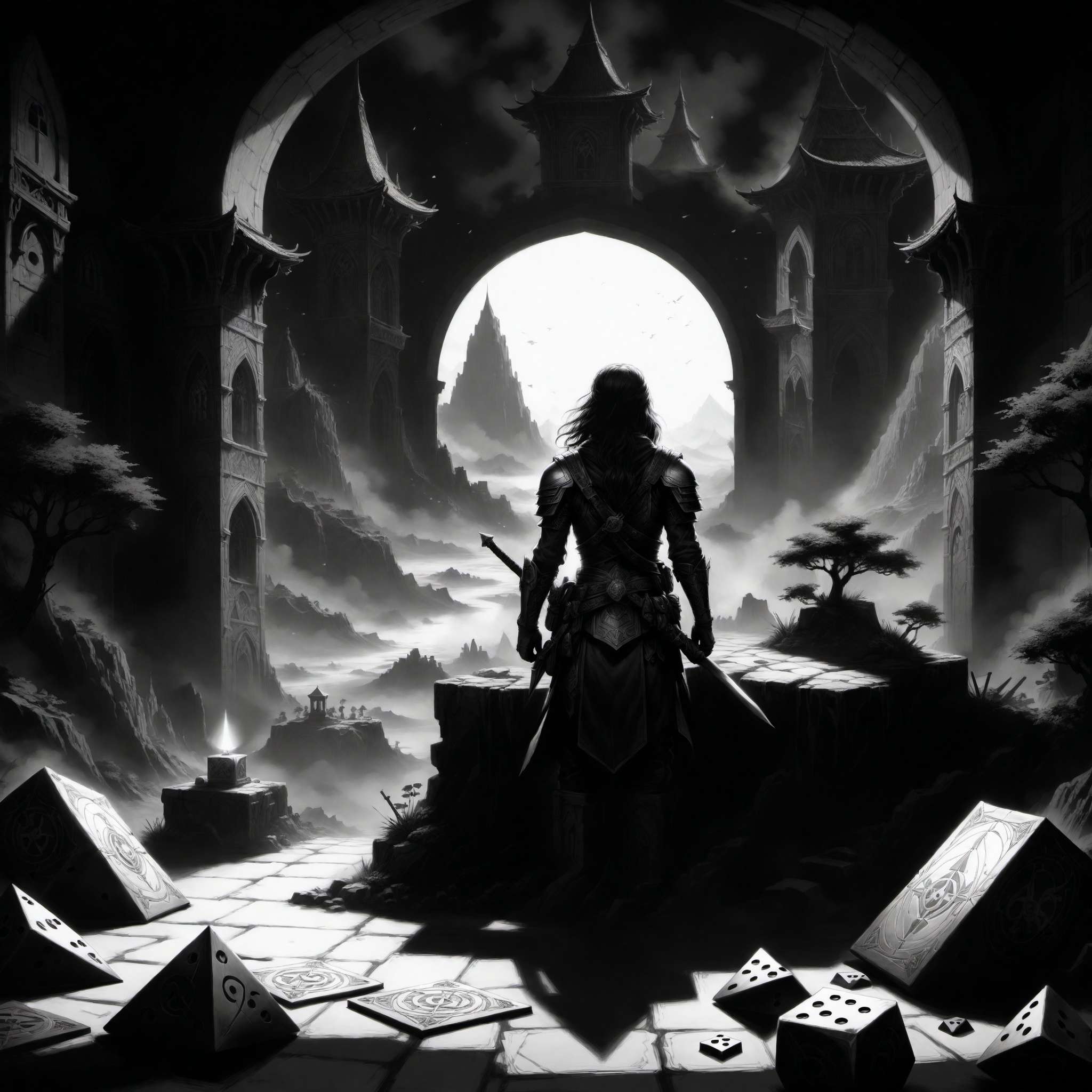
© Copyright , ZombieBunny.Org
Early beginnings of RPG
The origins of RPGs can be traced back to the mid-20th century with the rise of tabletop war games. These strategic games, where players simulated battles using miniature figures and dice, laid the groundwork for what would eventually become role-playing games. However, it was not until 1974, with the creation of Dungeons & Dragons (D&D) by Gary Gygax and Dave Arneson, that the RPG genre truly took shape. D&D introduced a new kind of gaming experience, one that emphasized character development, narrative storytelling, and player choice.
Dungeons & Dragons was revolutionary in its approach. Instead of simply commanding armies, players assumed the roles of individual characters, each with their unique abilities and backgrounds. They embarked on fantastical quests, navigated complex social interactions, and battled mythical creatures. The game was driven by a Dungeon Master who not only set the scene but also adapted the story and challenges based on players’ actions. This emphasis on player agency and interactive storytelling was a game-changer. It set the foundation for the RPG genre, influencing countless games that followed. As we delve deeper into the history of RPGs, it’s important to recognize the impact of these early beginnings and how they shaped the rich, immersive world of RPG gaming that we know today.
Transition into digital RPG
As the popularity of tabletop RPGs like Dungeons & Dragons grew, the advent of personal computers in the late 70s and early 80s provided an opportunity for the genre to expand into a new medium. The first digital RPGs attempted to translate the pen-and-paper experience onto the computer screen. Games like Akalabeth and Wizardry laid the groundwork for the digital RPG genre, featuring text-based adventures and simple graphical representations.
However, it was Richard Garriott’s Ultima series that truly set the standard for digital RPGs. These games introduced a vast world to explore, intricate storylines, and complex character interactions, all packaged in a visually appealing format. As technology advanced, so did the complexity and depth of digital RPGs. Titles like Baldur’s Gate and Final Fantasy took the genre to new heights, offering immersive narratives, strategic combat, and stunning visuals. These games successfully transported the essence of tabletop RPGs into the digital realm, providing a new platform for players to immerse themselves in fantastical worlds. The transition into digital RPGs marked a significant milestone in the genre’s history, propelling it into the mainstream and paving the way for the diverse array of RPGs we enjoy today.
Key moments in RPG history
The history of RPGs is marked by several key moments that have shaped the genre’s evolution. The creation of Dungeons & Dragons in 1974 was undoubtedly a defining moment, giving birth to the RPG genre and inspiring countless games. The transition to the digital realm in the late 70s and early 80s with games like Akalabeth and Ultima was another pivotal point, opening up new possibilities for gameplay and narrative.
The release of the game Final Fantasy in 1987 marked a significant moment for RPGs, especially in terms of storytelling and character development. Its success led to a series of sequels, each improving upon the last, and it remains one of the most popular RPG franchises to this day. The launch of World of Warcraft in 2004 was another landmark event, revolutionizing the concept of multiplayer gaming and bringing RPGs into the realm of massively multiplayer online games (MMORPGs).
More recently, the release of The Witcher 3: Wild Hunt in 2015 has been hailed as a pinnacle of RPG development. With its vast open world, intricate storyline, and deep character development, it represents the culmination of decades of evolution in the genre. As we look back on these key moments in RPG history, we gain a deeper appreciation for how far the genre has come and a glimpse into its potential future.
The Mechanics: Understanding Game Rules and Systems
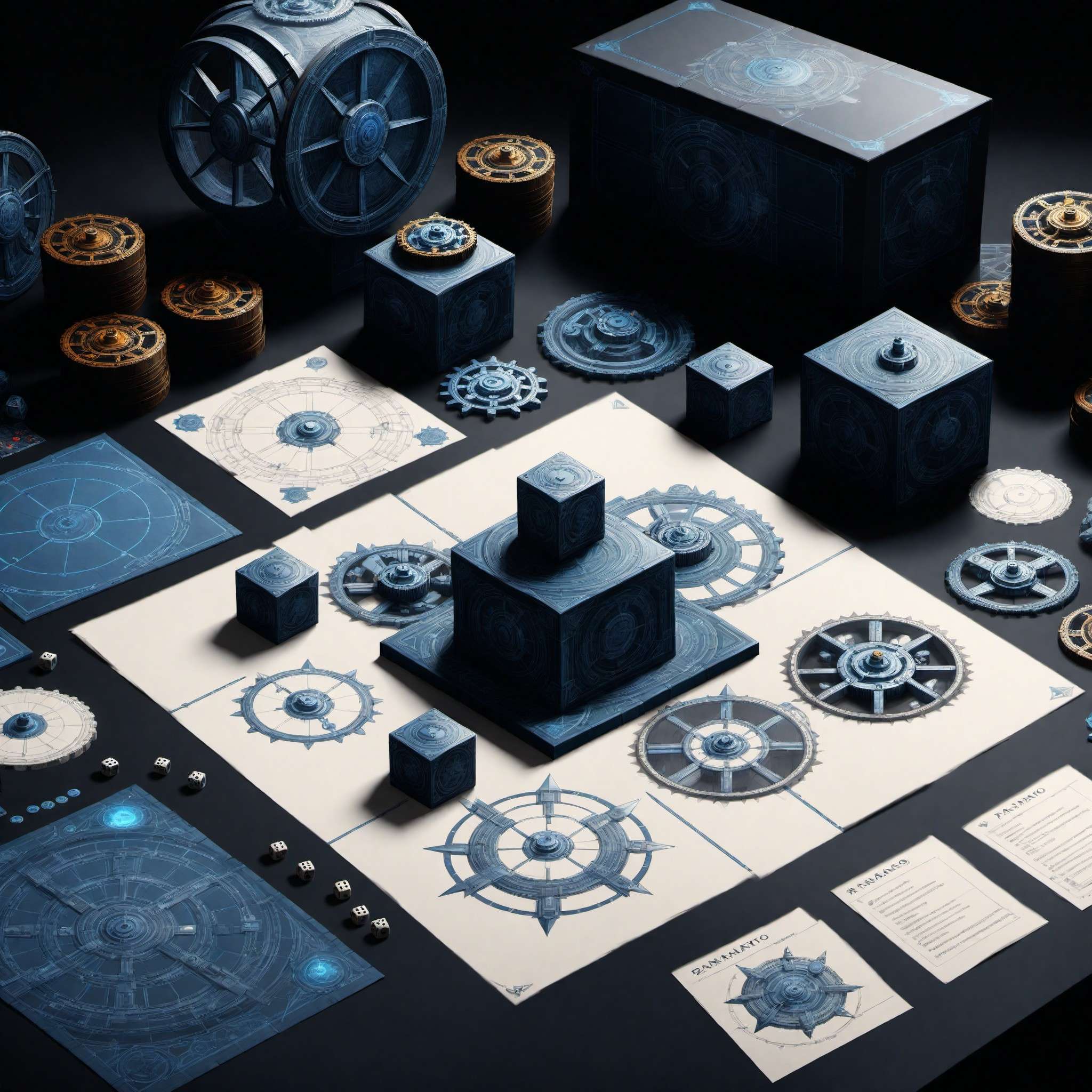
© Copyright , ZombieBunny.Org
Basic rule systems
A fundamental aspect of RPGs is their rule systems, which govern everything from character creation and development to combat and interactions with the game world. Understanding these rules is key to mastering any RPG. At the heart of most RPGs is a system of statistics or “stats” that define a character’s abilities. These might include strength, intelligence, charisma, and other attributes that affect how a character performs in various situations.
In many RPGs, these stats are determined at character creation and can be improved as the character gains experience, often through completing quests or defeating enemies. Another crucial component of RPG rule systems is the combat mechanics. Whether it’s turn-based strategy, real-time combat, or a mix of both, understanding how to effectively utilize your character’s abilities in combat is vital for success.
In addition to these fundamental systems, RPGs often include rules for interacting with non-player characters (NPCs), exploring the game world, and using items. These rules can vary greatly from game to game, adding depth and complexity to the gameplay. Whether you’re a seasoned RPG player or a newcomer to the genre, getting to grips with the basic rule systems is the first step on your journey into the immersive world of RPGs.
Character development and progression
Character development and progression are cornerstones of the RPG experience. They provide a sense of growth and achievement, making the journey through the game’s world deeply personal and engaging. Character development in RPGs often begins with character creation, where players choose a race, class, and allocate initial stats, tailoring their character to their preferred playstyle. As the game progresses, characters earn experience points (XP) through completing quests, defeating enemies, or through interactions in the world.
Accumulated XP leads to level-ups, which often allow players to further improve their character’s stats, acquire new skills, or unlock abilities. This progression system adds a strategic layer to RPGs, as players must decide where to allocate their resources to best improve their character. In many RPGs, characters can also progress through acquiring and upgrading gear, forming alliances, or making key decisions that influence their personal storyline.
The progression is not just about stats and abilities, it also involves the character’s personal growth and the evolution of their role within the game’s narrative. This can be especially pronounced in RPGs that offer branching narratives or moral choices that can shape the character’s personality and alignment. Whether it’s the thrill of leveling up, the satisfaction of mastering a new skill, or the emotional impact of a character’s personal journey, character development and progression are what make RPGs a deeply rewarding gaming experience.
Role of chance and strategy
In RPGs, the interplay of chance and strategy forms a fundamental part of gameplay, adding an element of unpredictability that can make each playthrough unique. Chance often comes into play through mechanics such as dice rolls or random number generators, which can determine the outcome of battles, the success of certain actions, or the loot you might find. These elements of randomness can add excitement and tension to the game, as the outcome can never be fully predicted.
However, while chance plays a role, strategy is often the key to success in RPGs. Players must make strategic choices about how to build and develop their characters, what equipment to use, how to approach battles, and which quests to undertake. Decisions like when to be aggressive, when to employ stealth, or when to use certain abilities can have a big impact on the game’s outcome.
Furthermore, the strategic depth of RPGs extends to their narratives. Choices made in dialogues and story paths can have far-reaching consequences, affecting relationships with non-player characters, the character’s personal development, and even the overall storyline. The role of chance and strategy in RPGs creates a complex, dynamic gameplay experience where every decision matters and the stakes can change in an instant. This delicate balance is one of the many factors that make RPGs a deeply engaging and immersive genre.
The Realm: Exploring Game Settings and Worlds
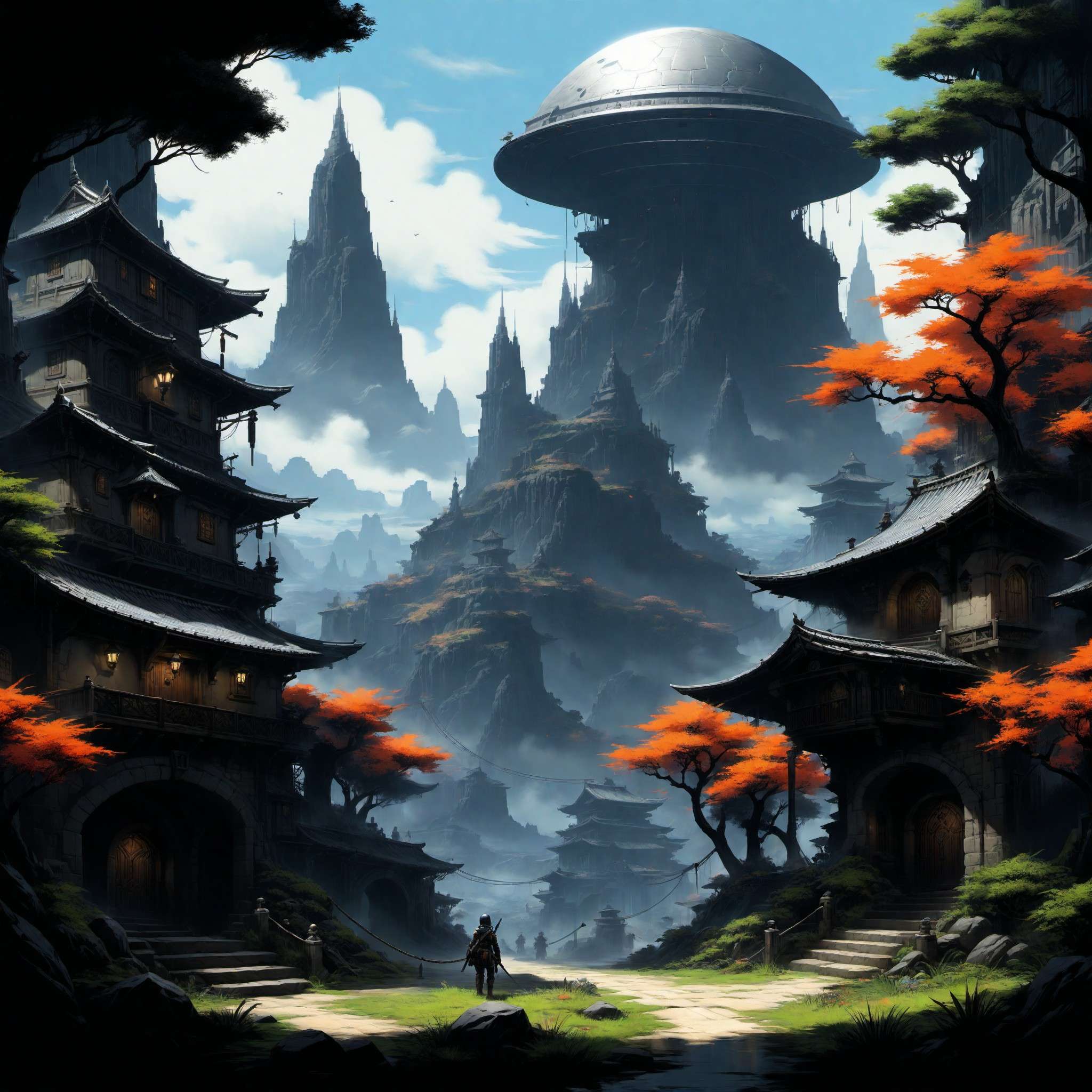
© Copyright , ZombieBunny.Org
Variety of game settings
Role-playing games are often celebrated for their diverse and imaginative settings, transporting players to worlds vastly different from our own. The settings of RPGs can range from high fantasy realms filled with magic and mythical creatures to dystopian future worlds, historical periods, or even alternate realities. Each setting provides a unique backdrop for the game’s narrative, influencing the gameplay, character types, and the overall atmosphere of the game.
In a fantasy RPG like The Elder Scrolls V: Skyrim, players traverse majestic mountains, ancient ruins, and mystical forests, battling dragons and harnessing magic. On the other hand, a game like Fallout 4 presents a post-apocalyptic world where players must navigate a harsh wasteland, contending with radiation, mutants, and the remnants of a shattered society. In a historically-inspired RPG like Assassin’s Creed: Valhalla, players are transported to the era of Viking invasions, exploring detailed recreations of medieval England.
These different settings not only provide visual variety but also influence the game mechanics, the types of quests and challenges, and the narrative themes explored. The setting of an RPG is more than just a backdrop; it’s a living, breathing world that offers endless opportunities for exploration and adventure. As we delve deeper into the realm of RPGs, we’ll see how these diverse settings contribute to the richness and depth of the gaming experience.
Importance of game worlds in RPGs
The game world in an RPG is more than just a stage for the characters; it’s a fundamental element that profoundly influences the gaming experience. The world’s design and lore can deeply affect the narrative, the available quests, the characters you meet, and the overall atmosphere of the game. A well-crafted game world is immersive and rich in detail, pulling players in and making them feel like they’ve stepped into another reality.
The game world can also impact gameplay mechanics. The layout of the land, the placement of cities and dungeons, and the distribution of resources all influence the player’s strategy and choices. Certain areas may be more dangerous than others, while some paths might be hidden or only accessible if the player has specific skills or items.
Moreover, the game world can set the tone for the game’s story and themes. A dystopian city might reflect a narrative about societal collapse and survival, while a high fantasy realm could explore themes of magic, power, and ancient prophecies.
In addition, the game world plays a crucial role in fostering exploration and discovery, key elements in many RPGs. Players are incentivized to explore the world, find hidden treasures, uncover secrets, and interact with the environment. It’s this sense of adventure and exploration that makes RPGs so captivating, and the game world is the playground where it all happens.
World-building techniques
World-building is an essential element of RPG design, creating the immersive environments that players explore. The process involves more than just crafting visually stunning landscapes; it’s about creating a believable, living world with its own history, culture, and rules.
One of the most important world-building techniques is creating a detailed backstory or lore for the game world. This can include the world’s history, the conflicts that shape its present, the cultures of its inhabitants, and the legends or myths that permeate its society. Games like The Witcher series and Mass Effect have extensive lore that adds depth to the game world and influences the narrative and character interactions.
Another technique involves designing diverse and distinct locations within the game world. From bustling cities and tranquil villages to eerie dungeons and enchanted forests, each location should have its own character and atmosphere. This diversity enhances exploration and makes the game world feel larger and more varied.
Lastly, interactivity is a key component of world-building in RPGs. Allowing players to interact with the environment, whether it’s picking up objects, talking to non-player characters, or affecting change in the world, makes the game world feel tangible and reactive.
Effective world-building results in game worlds that are compelling, immersive, and full of surprises, making each journey into the game an exciting adventure. As we delve deeper into the realm of RPGs, we’ll see how these techniques bring game worlds to life and shape our gaming experiences.
The Cast: Characters and NPCs in RPG Games
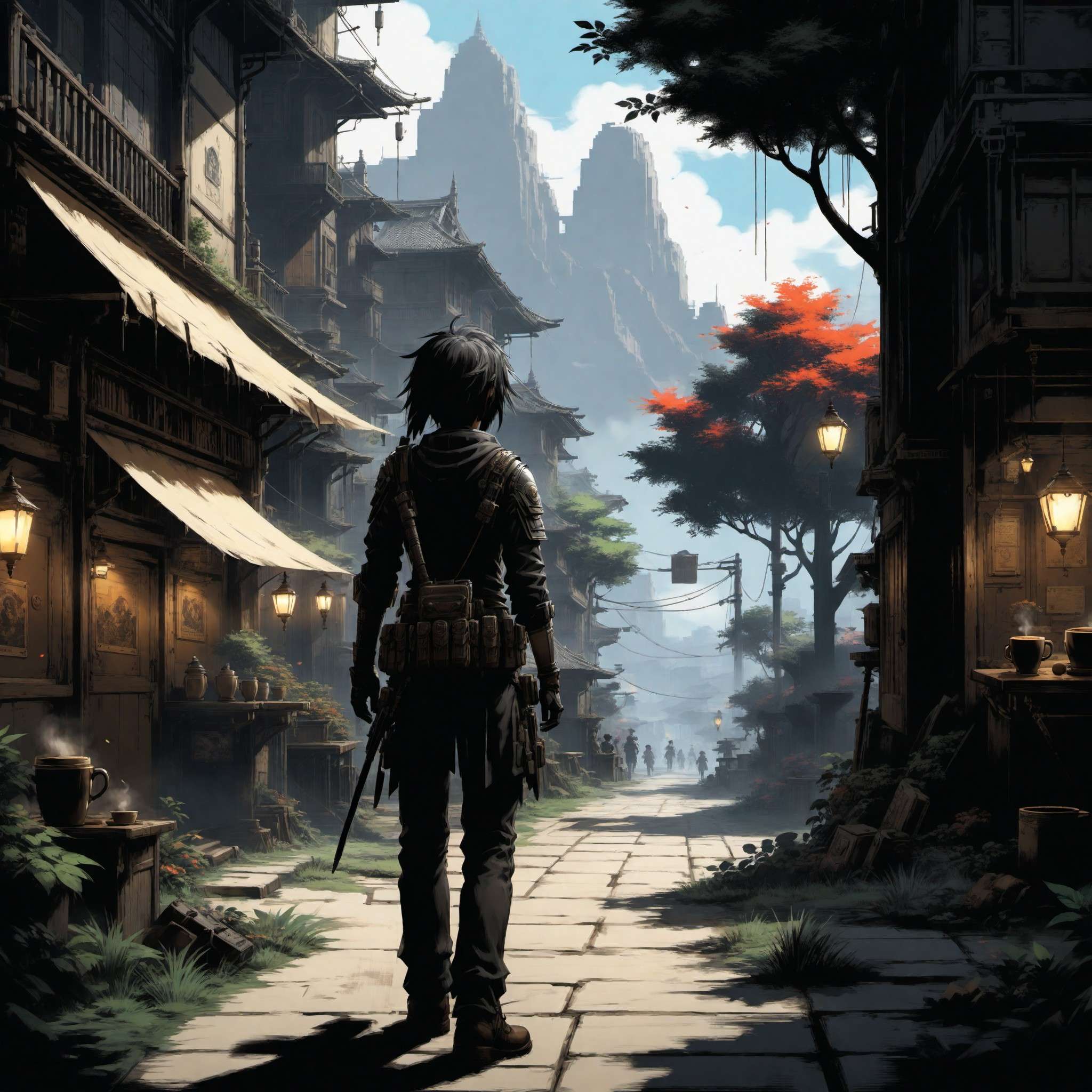
© Copyright , ZombieBunny.Org
Creating your character
Creating your character is often the first step in your RPG journey and one of the most engaging aspects of the genre. It’s a process that allows players to craft their alter-ego in the game world, reflecting their preferred playstyle, aesthetic preferences, and often, the narrative choices they wish to explore. Depending on the game, character creation can involve choosing a race or species, a class or profession, and allocating starting stats.
Races or species often come with distinct traits, abilities, and sometimes, unique storylines. These can range from humans, elves, and dwarves in a fantasy setting to various alien species in a sci-fi RPG. Class or profession, on the other hand, determines your character’s skills and abilities, whether they’ll be a sword-wielding warrior, a cunning rogue, or a powerful mage.
Allocating starting stats is a strategic decision that will influence your character’s performance in various situations. Whether you prioritize strength for combat, intelligence for magic, or charisma for social interactions, these early decisions can shape your character’s journey throughout the game.
Some RPGs also allow for detailed physical customization of the character, enabling players to fine-tune their appearance. This level of customization adds a personal touch, making players more invested in their characters. As we delve deeper into the world of RPGs, we’ll see how this process of character creation sets the stage for the immersive, personalized experiences that define the genre.
Interacting with NPCs
Interacting with non-player characters (NPCs) is a crucial part of the RPG experience. These characters, controlled by the game’s AI, populate the game world and add depth to the narrative. They can be allies, enemies, merchants, quest-givers, or simply inhabitants of the game world. The interactions with NPCs can provide valuable information, advance the storyline, offer quests, or trigger events.
Dialogues with NPCs often involve a choice of responses, allowing players to express their character’s personality or make decisions that can impact the game’s narrative. This element of choice adds a layer of realism to these interactions, with your character’s words and actions influencing their relationships with NPCs and shaping the world’s perception of them.
In many RPGs, NPCs can also join your character’s party, lending their skills to your cause and sometimes offering their own personal quests or storylines. These companions can provide valuable support in battles, open up new gameplay options, and enrich the narrative with their unique perspectives and backstories.
Interacting with NPCs is more than just a means to an end; it’s an opportunity to immerse yourself in the game world, to understand its lore, and to influence its narrative. As we delve deeper into the world of RPGs, we’ll uncover how these interactions with NPCs bring the game world to life, creating a rich and dynamic narrative experience.
Character arcs and progression
Character arcs and progression are critical elements that add depth and emotional resonance to RPG narratives. An effective character arc can make your character’s journey feel meaningful and rewarding, as they grow, learn, and change over the course of the game. This progression is often reflected in both gameplay and narrative aspects, affecting your character’s abilities as well as their role within the game’s story.
In gameplay terms, character progression typically involves improving your character’s stats, acquiring new skills, or upgrading equipment. This sense of growth and improvement not only provides a sense of achievement but also allows you to tackle increasingly challenging quests and enemies.
On the narrative side, character arcs often involve personal quests or challenges that your character must overcome. These can range from resolving a personal conflict or achieving a long-held goal, to undergoing a significant change in beliefs or alignment. These narrative arcs often intersect with the game’s main storyline, with your character’s personal journey influencing and being influenced by the larger events of the game world.
The combination of gameplay and narrative progression creates a compelling character journey, making you invested in your character’s growth and development. As we delve deeper into the world of RPGs, we’ll explore how these character arcs and progression mechanisms contribute to the immersive and engaging experiences that define the genre.
The Challenges: Quests Puzzles and Combat in RPGs
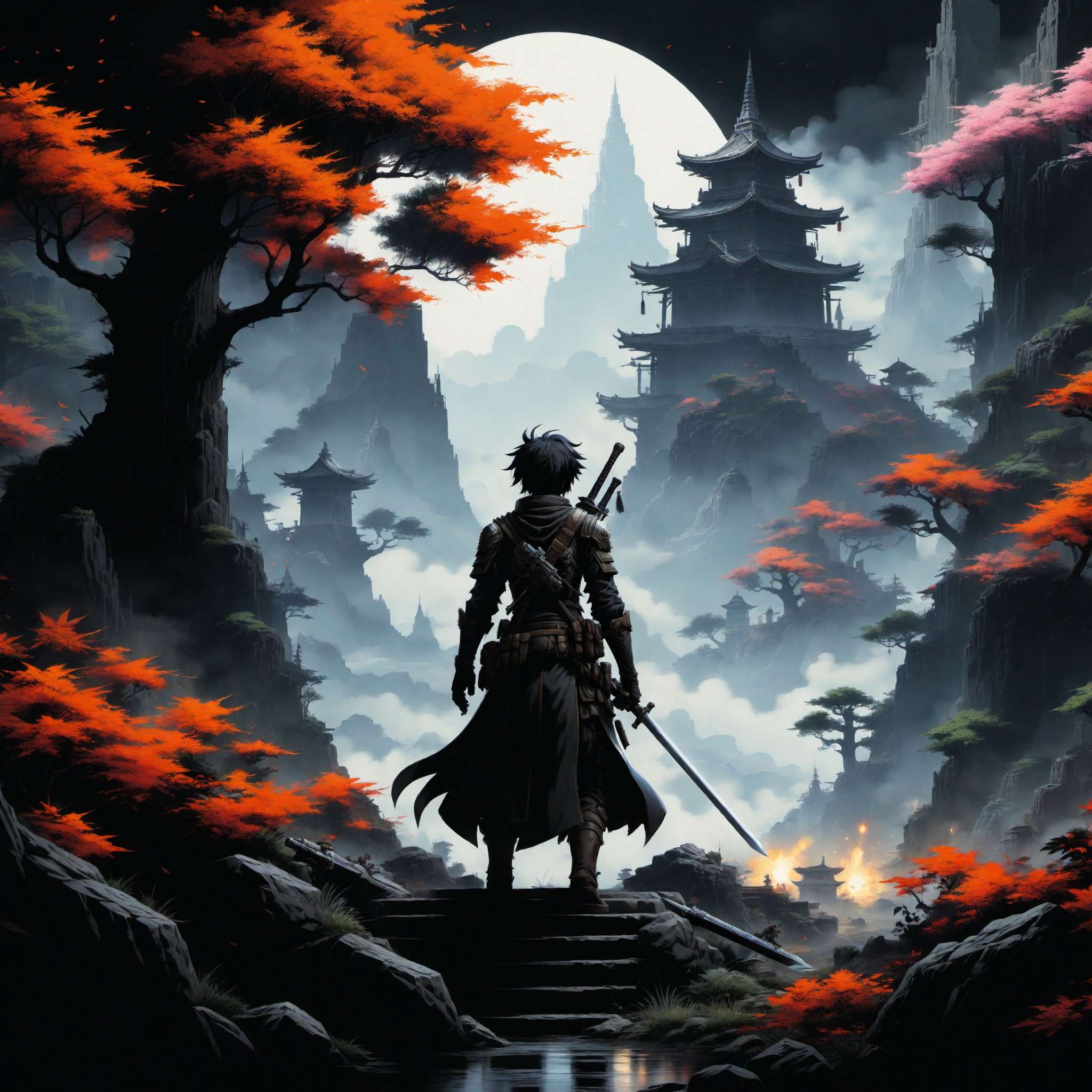
© Copyright , ZombieBunny.Org
Types of quests in RPGs
Quests form the backbone of most RPG narratives, driving the story forward and offering players a variety of challenges to overcome. They can range from main quests that advance the central storyline, to side quests that explore subplots or character backstories. Main quests typically involve major conflicts or objectives that are central to the game’s narrative. Completing these quests often results in significant progress in the story, new locations becoming accessible, or major changes in the game world.
Side quests, on the other hand, are optional tasks that players can choose to undertake. These quests can offer a variety of rewards, including experience points, items, or insight into the game’s lore. They often involve helping NPCs, uncovering hidden locations, or solving puzzles. Side quests add depth to the game world, providing additional challenges and allowing players to explore the game at their own pace.
In addition to these, some RPGs feature faction quests, which involve tasks for specific groups within the game world. Completing these quests can improve the player’s reputation with that faction, unlock special rewards, or influence the game’s narrative.
From epic quests to defeat powerful enemies, to personal quests that delve into a character’s backstory, the diverse array of quests in RPGs offer a wealth of engaging challenges. As we delve deeper into the world of RPGs, we’ll uncover how these quests contribute to the immersive and rewarding gameplay that defines the genre.
Solving puzzles
Puzzles are a common element in RPGs, offering a break from combat and adding an extra layer of challenge. These puzzles often require the player to think strategically, solve riddles, or manipulate the environment in creative ways. They can be standalone challenges, part of a quest, or integrated into the game world as obstacles that block the player’s progression.
Some puzzles might involve manipulating objects in the environment to reveal hidden paths or treasures. Others might require the player to decipher cryptic clues or riddles, often drawing on the game’s lore or the player’s observations of the game world. Some RPGs feature complex mechanical puzzles, where players need to operate machinery or arrange objects in a certain way to achieve a specific outcome.
Solving these puzzles often rewards the player with experience points, items, or new paths in the game world. They can also reveal new information about the game’s story or lore, adding depth to the narrative.
Puzzles not only test the player’s problem-solving skills but also encourage them to engage more deeply with the game world and its mechanics. As we delve deeper into the world of RPGs, we’ll explore the diverse range of puzzles in these games and how they contribute to the genre’s rich and varied gameplay.
Combat systems
Combat is a key component of most RPGs, providing a thrilling challenge and a way for characters to gain experience and loot. The combat systems in RPGs can vary widely, ranging from turn-based strategy to real-time action, each offering a distinct gameplay experience.
In turn-based combat, as seen in games like Final Fantasy or Divinity: Original Sin, players and enemies take turns to perform actions. This provides a strategic, thoughtful pace where players can plan their moves carefully, considering the strengths and weaknesses of their characters and their foes.
In contrast, real-time combat, as in The Witcher or Skyrim, offers a more dynamic, fast-paced experience. Players must react quickly to enemy attacks, dodge, block, and strike in real-time. This system often requires a blend of strategic skill selection and reflex-based gameplay.
Some RPGs also offer a hybrid system, like Dragon Age: Inquisition, where players can switch between real-time combat and a more strategic, pause-and-play approach.
Regardless of the system, combat in RPGs often requires a deep understanding of your character’s abilities, careful resource management, and strategic use of the environment. As we delve deeper into the challenges of RPGs, we’ll explore how these combat systems shape the gameplay, offering a range of experiences from thoughtful tactical battles to adrenaline-fueled action sequences.
The Impact: RPGs and Society
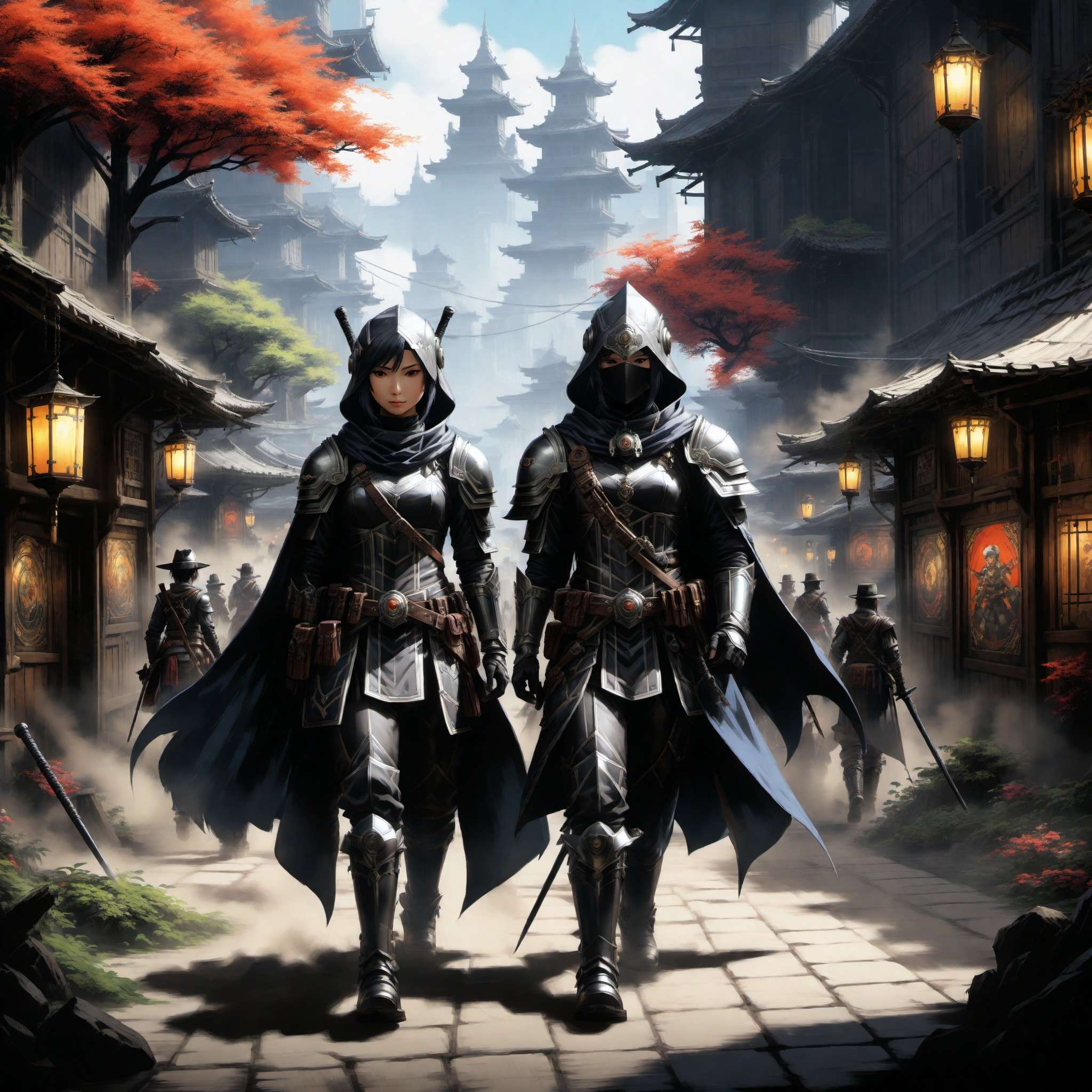
© Copyright , ZombieBunny.Org
RPGs in popular culture
Role-Playing Games (RPGs) have made a lasting impact on popular culture, influencing everything from books and movies to music and art. The rich narratives, immersive worlds, and memorable characters that define the RPG genre have captured the imagination of millions, making their mark far beyond the realm of gaming.
RPGs like Dungeons & Dragons have inspired a host of popular novels and TV shows, including the likes of Stranger Things, which pays homage to the game’s influence on 1980s youth culture. Similarly, the rich lore and distinctive aesthetics of games like World of Warcraft and The Elder Scrolls have influenced artists, designers, and filmmakers, leading to a host of spin-off media including books, comics, and even movies.
RPGs have also permeated music, with numerous bands and songs drawing inspiration from RPG narratives and settings. From heavy metal bands like Blind Guardian writing songs about The Elder Scrolls series to pop culture phenomenon like “Critical Role” introducing RPGs to new audiences, the genre’s influence is wide-reaching.
Moreover, the impact of RPGs extends to online culture and language, with terms like “level up” and “grinding” finding their way into everyday usage. As we delve deeper into the world of RPGs, we’ll explore how this beloved genre has left its mark not just on the gaming industry, but on popular culture as a whole.
Social impact of RPGs
The social impact of Role-Playing Games (RPGs) extends far beyond their entertainment value. As interactive platforms, RPGs have fostered global communities, promoted collaborative problem-solving, and even provided a space for personal growth and exploration.
Massively Multiplayer Online RPGs (MMORPGs) like World of Warcraft or Final Fantasy XIV have brought players together from around the world, creating vibrant online communities. These games encourage cooperation, with players forming teams or guilds to tackle challenging quests, fostering a sense of camaraderie and teamwork.
RPGs also promote problem-solving and strategic thinking, as players navigate complex game worlds, solve puzzles, and devise strategies to overcome challenges. These skills can translate to real-world scenarios, helping players in their daily lives.
Moreover, RPGs provide a safe space for players to explore different aspects of their identity. Through character creation and choice-driven narratives, players can express themselves in ways they might not feel comfortable doing in their everyday lives.
Importantly, RPGs can also foster empathy. By placing players in the shoes of diverse characters and exposing them to a variety of narratives and moral choices, RPGs can broaden players’ perspectives and cultivate understanding. As we delve deeper into the world of RPGs, we’ll explore how these games are more than just a pastime, but a powerful tool for social connection, personal development, and cultural understanding.
Role of RPGs in gaming culture
Role-Playing Games (RPGs) have been integral to gaming culture, shaping the industry’s evolution and influencing countless other genres. With their deep narratives, complex mechanics, and immersive worlds, RPGs have set a high bar for storytelling and player engagement in video games.
RPGs have given rise to many of the gaming conventions we take for granted today. Concepts like leveling up, character classes, and open-world exploration, which are now ubiquitous across many genres, originated in RPGs. Games like Final Fantasy and Baldur’s Gate have inspired a generation of game designers, their influence seen in everything from action-adventure games to strategy titles.
RPGs have also been at the forefront of pushing the boundaries of what video games can be. With their emphasis on narrative and character development, RPGs have shown that games can be a powerful medium for storytelling. They’ve challenged players to make meaningful choices, grapple with moral dilemmas, and engage with complex themes.
Moreover, RPGs have fostered vibrant communities of passionate fans, sparking discussions, fan art, cosplay, and even fan-made modifications or “mods” that add new content or features to the game. They’ve also been instrumental in the rise of esports and streaming culture, with games like World of Warcraft and Diablo III drawing millions of viewers. As we delve deeper into the world of RPGs, we’ll explore how these games have shaped, and continue to influence, gaming culture and the broader cultural landscape.
The Future: Emerging Trends in RPG Games
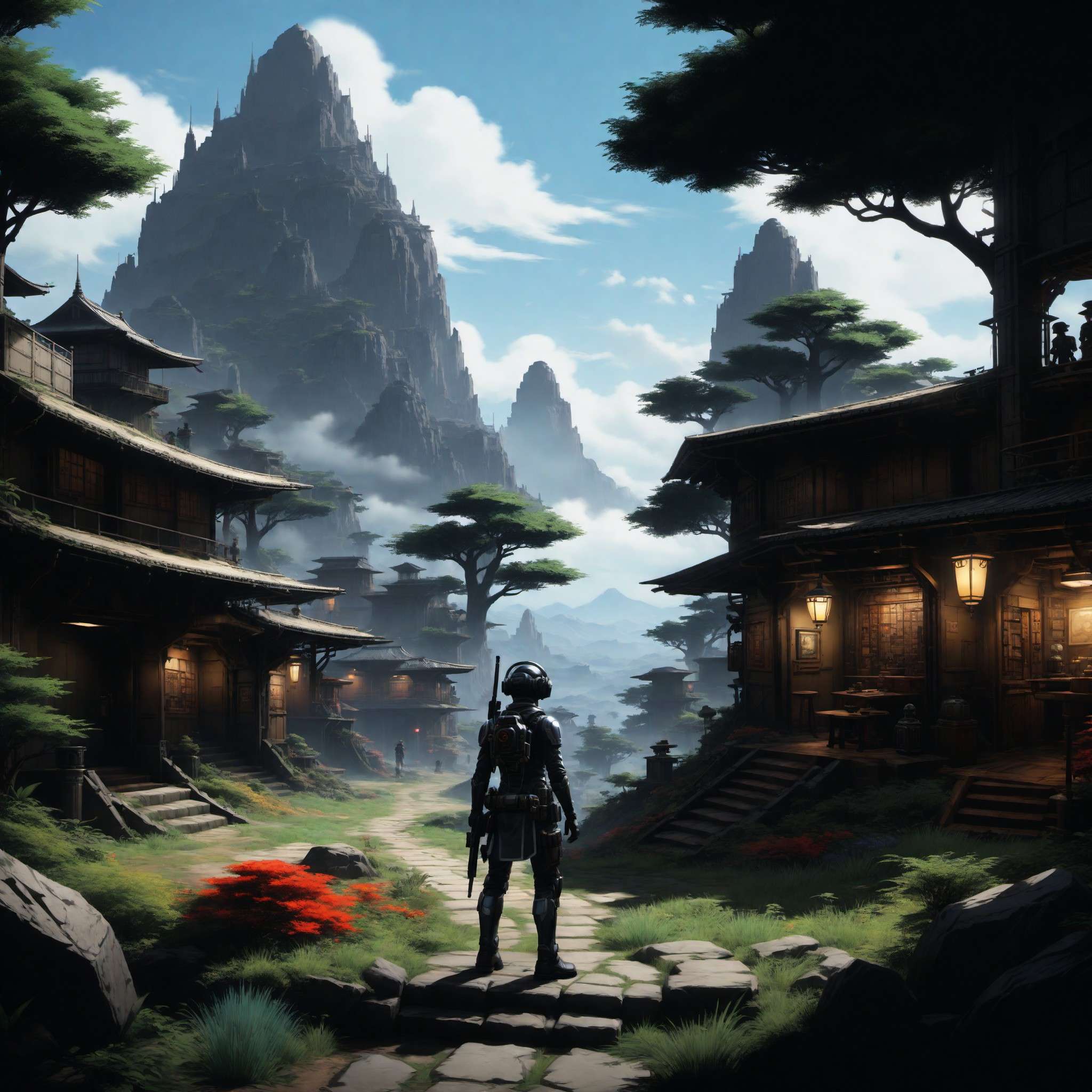
© Copyright , ZombieBunny.Org
Innovations in RPG gaming
Role-Playing Games (RPGs) have always been a hotbed for innovation in the gaming industry, constantly evolving and pushing the boundaries of what games can be. These innovations have come in many forms, from new gameplay mechanics and storytelling techniques to advancements in graphics and technology.
One significant innovation has been the rise of choice-driven narratives. Games like The Witcher 3 and Mass Effect have placed player choice at the heart of their narratives, with decisions made by the player having significant impact on the story’s progression and outcome. This has added a layer of depth and replayability to these games, as players can experience different story paths in each playthrough.
Another trend is the blending of genres. Many modern RPGs incorporate elements from other genres, such as action, strategy, or survival games, creating hybrid experiences that appeal to a wider range of players. Games like Dark Souls combine RPG elements with challenging action gameplay, while The Banner Saga blends RPG mechanics with turn-based strategy.
Technological advancements have also brought innovations in RPG gaming. The rise of virtual and augmented reality technology offers new possibilities for immersion, allowing players to truly step into the game’s world. Meanwhile, the growth of mobile gaming has led to the development of mobile RPGs, bringing the genre to a broader audience. As we delve deeper into the world of RPGs, we’ll explore how these innovations are shaping the future of the genre.
Role of VR and AI
Virtual Reality (VR) and Artificial Intelligence (AI) are two emerging technologies that hold significant potential for the future of Role-Playing Games (RPGs). With their ability to enhance immersion and create more dynamic, responsive game worlds, VR and AI represent exciting frontiers for the genre.
VR technology offers a new level of immersion for RPG players. By allowing players to step into the game world, VR can make the RPG experience more visceral and engaging. Imagine exploring a sprawling fantasy city, battling monsters, or interacting with characters in a fully immersive, 360-degree environment. Games like The Elder Scrolls V: Skyrim VR and Asgard’s Wrath have already begun to explore the potential of VR RPGs, offering glimpses of what the future could hold.
On the other hand, AI can enhance RPGs by creating more dynamic, responsive game worlds. Advanced AI can make non-player characters more realistic and complex, enabling more meaningful interactions. It can also adapt the game world to the player’s actions, making the world feel more alive and reactive. AI could even be used to generate new quests or storylines dynamically, creating a truly emergent narrative experience.
As we delve deeper into the future of RPGs, we’ll explore how these technologies are being used to push the boundaries of the genre, creating more immersive, dynamic, and engaging gaming experiences.
Upcoming RPG titles to look forward to
The future of Role-Playing Games (RPGs) is looking bright, with several highly anticipated titles on the horizon. These upcoming games promise to deliver engaging narratives, innovative gameplay, and immersive worlds that push the boundaries of the genre.
One such title is “Elden Ring,” the latest offering from the creators of the renowned Dark Souls series. Promising a vast, fully explorable world and a deep, intricate narrative penned by renowned fantasy author George R.R. Martin, Elden Ring is set to be a major event in the RPG landscape.
Another eagerly awaited title is “Horizon Forbidden West,” the sequel to the critically acclaimed “Horizon Zero Dawn.” Players will once again step into the shoes of Aloy in an expansive post-apocalyptic world filled with mechanized creatures, engaging in a rich narrative and strategic combat.
On the indie scene, “Baldur’s Gate 3” has been making waves. Currently in early access, this long-awaited sequel promises deep character customization, a rich narrative, and a return to the complex, strategic gameplay that made the original Baldur’s Gate games classics.
These upcoming titles represent just a glimpse of the exciting future of RPGs. As we delve deeper into the world of RPGs, we’ll keep an eye on these and other upcoming games, waiting to see how they will continue to evolve and enrich the genre.
The Players: Community and Multiplayer Aspects
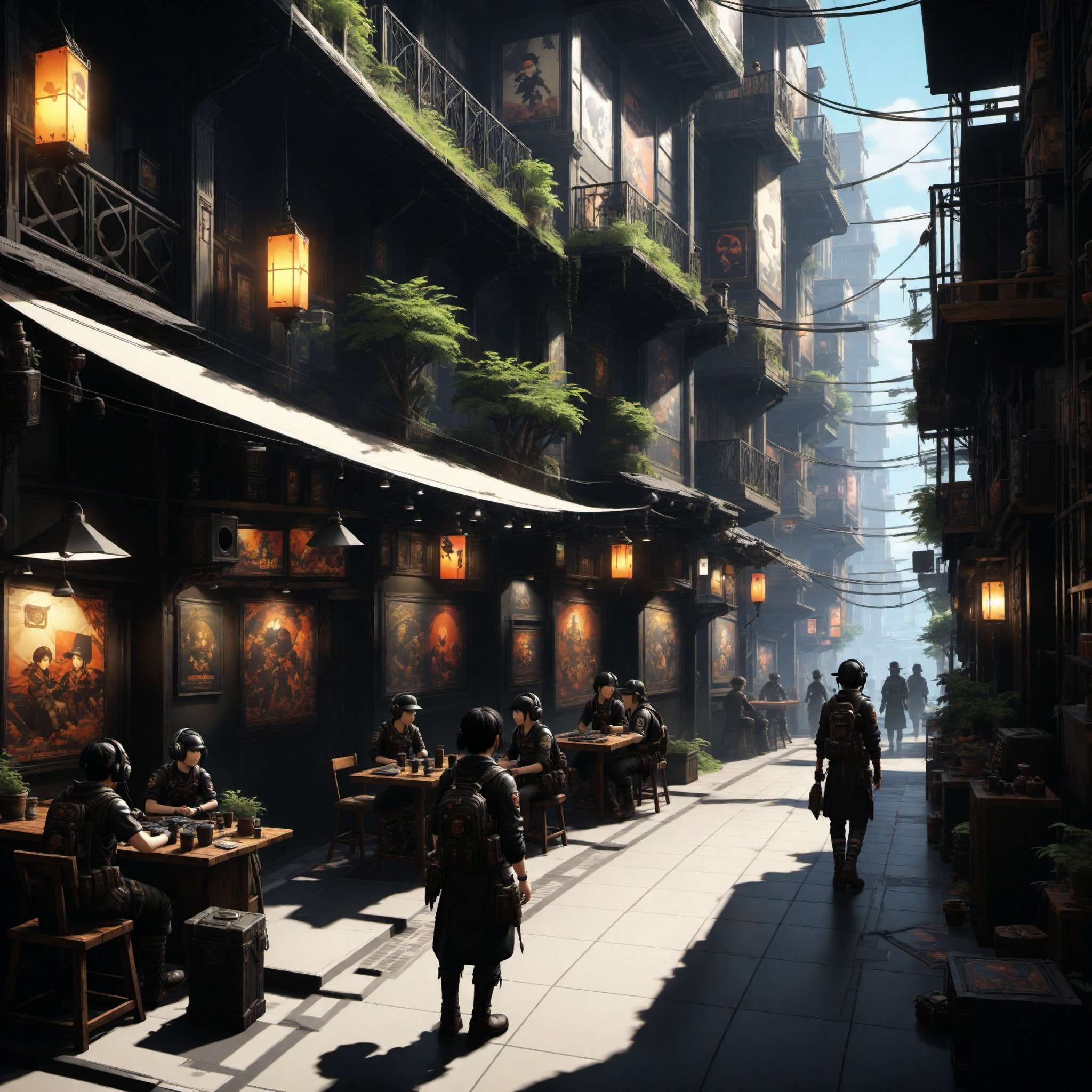
© Copyright , ZombieBunny.Org
The importance of community in RPGs
Community plays a significant role in the world of Role-Playing Games (RPGs), enhancing the gaming experience and fostering a sense of camaraderie among players. From shared strategies and gameplay tips to lively discussions about game lore and narratives, the community aspect adds a dynamic, social dimension to the RPG experience.
In many RPGs, particularly Massively Multiplayer Online RPGs (MMORPGs), the community is an integral part of the game. Players form teams or guilds to tackle challenging quests, trade items, or simply socialize. These communities can foster lasting friendships, with players from around the world coming together over a shared love of the game.
RPG communities also extend beyond the game itself, with forums, social media groups, and fan websites providing spaces for players to discuss game strategies, share fan art, or delve deeper into the game’s lore. These communities can be a valuable resource for new players and a source of ongoing engagement for veterans.
Moreover, the RPG community often contributes directly to the game, whether through creating fan-made content, providing feedback to developers, or organizing in-game events. This active participation makes the community an essential part of the RPG ecosystem.
As we delve deeper into the world of RPGs, we’ll explore how these vibrant communities contribute to the enduring appeal of the genre, fostering a sense of belonging and enhancing the overall gaming experience.
Multiplayer RPGs vs Single player
The RPG genre encompasses a wide range of gaming experiences, from immersive single-player narratives to expansive multiplayer worlds. Both single-player and multiplayer RPGs offer distinct experiences, each with their unique appeals and challenges.
Single-player RPGs, such as The Elder Scrolls V: Skyrim or The Witcher 3: Wild Hunt, offer deep, story-driven experiences where players can explore vast game worlds at their own pace. These games often feature rich narratives, complex character development, and a focus on strategic gameplay. The single-player format allows for a more controlled narrative and a greater emphasis on immersion, as players can lose themselves in the game world without external distractions.
On the other hand, multiplayer RPGs, like World of Warcraft or Final Fantasy XIV, offer a more communal experience. These games allow players to team up to tackle challenging quests, trade items, or compete against each other. The multiplayer element adds a social dimension to the game, fostering a sense of camaraderie and competition. These games often feature ongoing content updates, keeping the game fresh and engaging over time.
Whether you prefer the narrative depth and immersion of single-player RPGs, or the social interaction and dynamic content of multiplayer games, the RPG genre offers a wide range of experiences to suit different playstyles. As we delve deeper into the world of RPGs, we’ll explore the unique charms and challenges of both single-player and multiplayer RPGs.
Finding your RPG community
Finding the right community can greatly enhance your Role-Playing Game (RPG) experience. Whether you’re seeking gameplay tips, lore discussions, or simply companionship, joining an RPG community can add a new layer of enjoyment to your gaming adventures.
Online forums such as Reddit or the official game forums are a great place to start. These platforms often have dedicated sections for specific RPG titles, where you can engage in discussions, ask questions, or share your experiences.
Social media platforms like Facebook or Twitter also host numerous RPG groups and pages, offering another avenue for interaction with fellow players. These groups often share news, updates, fan art, and more, fostering a sense of camaraderie among members.
If you’re playing a Multiplayer RPG, consider joining a guild or clan within the game. These in-game communities provide opportunities for teamwork, social interaction, and mutual support, enhancing the multiplayer experience.
For those interested in game development or modding, communities like GitHub or ModDB can be invaluable. These platforms host numerous RPG modding projects, offering a chance to learn from and collaborate with other enthusiasts.
Remember, each community has its own culture and rules, so take time to familiarize yourself with these before engaging. As we delve deeper into the world of RPGs, we’ll explore how finding the right community can enrich your gaming experience, offering support, camaraderie, and shared passion for the genre.
Conclusion: Your Journey into the RPG World
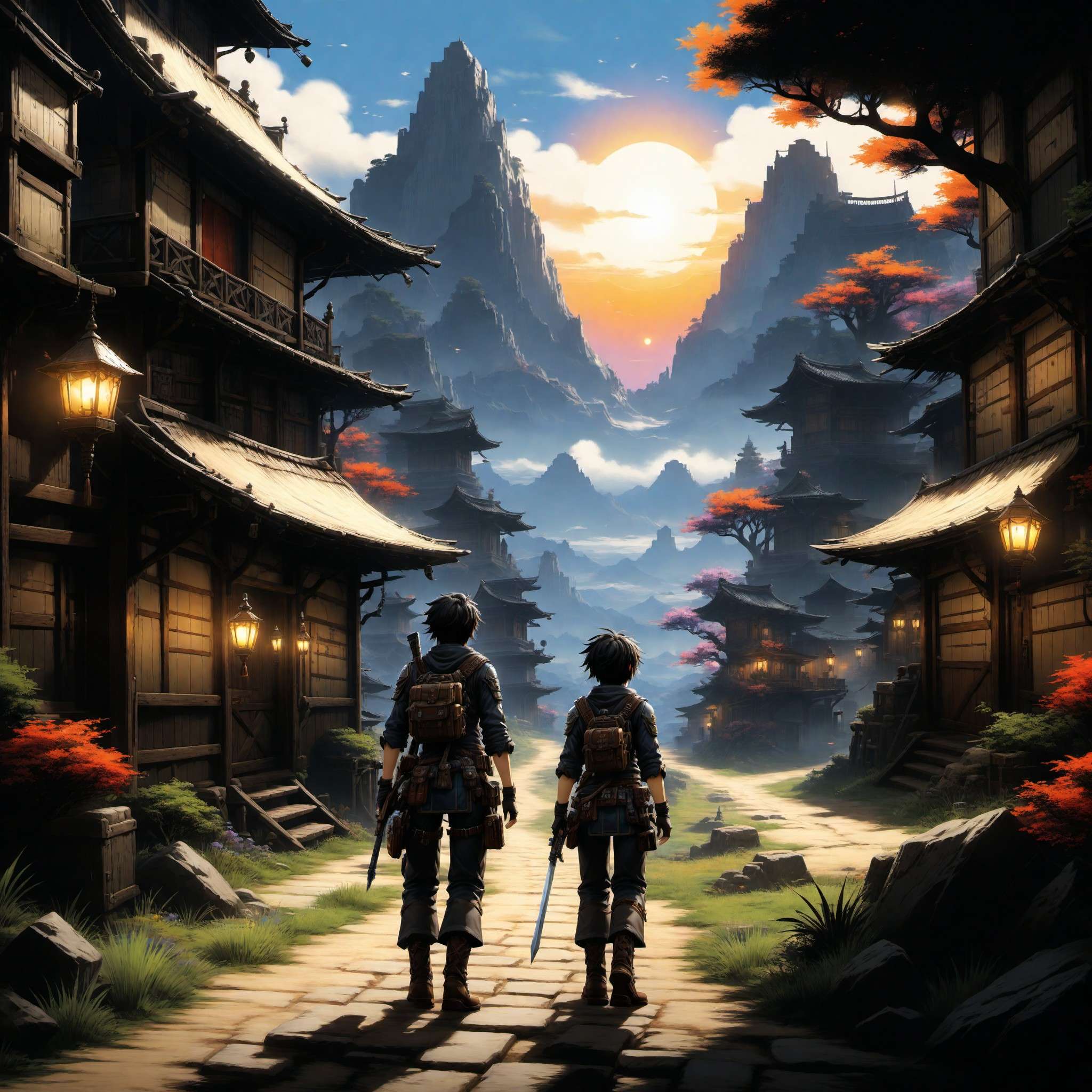
© Copyright , ZombieBunny.Org
Recap of the blog
As we’ve journeyed through the multifaceted world of Role-Playing Games (RPGs), we’ve uncovered the depth and complexity that make this genre so captivating. From delving into the rich narratives and diverse characters, to exploring the strategic combat and challenging quests, we’ve seen how RPGs offer an immersive and rewarding gaming experience.
We’ve shed light on the vital role of community in RPGs, highlighting the sense of camaraderie and shared passion that binds players together. Whether it’s through in-game guilds, online forums, or social media groups, these vibrant communities are at the heart of the RPG experience.
We’ve also looked to the future, exploring emerging trends and innovations in RPG gaming. From the potential of VR and AI, to the exciting upcoming titles, we’ve seen how RPGs continue to evolve and push the boundaries of the gaming industry.
Finally, we’ve reflected on the impact of RPGs, recognizing their influence on gaming culture and their broader social implications. From fostering global connections and promoting problem-solving skills, to allowing personal exploration and fostering empathy, RPGs are more than just games; they’re a powerful tool for connection, understanding, and growth.
Now, as you venture forth into the world of RPGs, you’re equipped with a deeper understanding of the genre, ready to explore, engage, and immerse yourself in these rich and diverse gaming worlds. Happy gaming!
Encouragement for new RPG gamers
For those just beginning their journey into the world of Role-Playing Games (RPGs), there’s an exciting adventure ahead. RPGs offer an unparalleled gaming experience, with rich narratives, complex characters, and immersive worlds waiting to be explored. While the depth and complexity of RPGs can be daunting at first, remember that every seasoned gamer once stood where you are now.
Don’t be afraid to start slow. Choose a game that appeals to you and take your time to familiarize yourself with its mechanics and lore. Each RPG is a unique universe with its own rules, so don’t rush. Enjoy the journey of discovery, and remember, there’s no wrong way to play.
Embrace the community. RPG gamers are some of the most passionate fans out there, and they’re often more than willing to help newcomers. Whether it’s advice on character builds, strategies for challenging quests, or simply sharing in the excitement of the game, the community can be a valuable resource and source of camaraderie.
Finally, remember that RPGs are all about choice and exploration. These games invite you to make your own path, to shape your character’s story and destiny. So dive in, explore, and let your imagination run wild. As we’ve seen in our journey through the world of RPGs, the possibilities are virtually endless. Welcome to the adventure.
Final thoughts and invitation to explore
Our journey into the world of Role-Playing Games (RPGs) has shown us the depth, complexity, and immersive qualities that define this beloved genre. From engaging narratives and strategic combat to vibrant communities and innovative technologies, we’ve seen how RPGs offer a rich, multifaceted gaming experience.
As we’ve explored, RPGs are more than just games; they’re intricate worlds waiting to be discovered, filled with compelling stories, unique characters, and engaging challenges. Whether you’re a seasoned gamer or just starting your journey, there’s always something new to discover in the world of RPGs.
Now, we extend an invitation to you: delve deeper, explore these immersive worlds, and become a part of the vibrant RPG community. Whether you’re slaying dragons in a high fantasy world, exploring distant galaxies in a sci-fi epic, or navigating the political intrigues of a medieval kingdom, there’s an RPG out there for you.
As you embark on your RPG journey, remember that the most important element is enjoyment. These games offer a unique blend of storytelling, strategy, and exploration, but at their heart, they’re about having fun. So dive in, embark on epic quests, build your character, and immerse yourself in the rich, diverse world of RPGs. Your adventure awaits.
Please support our site and purchase something from our store.







